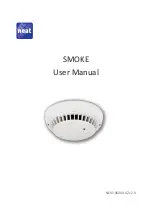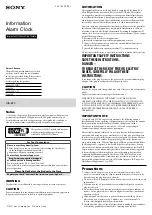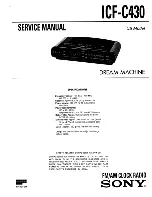
23
17. Limitations Of Smoke Alarms
WARNING: PLEASE READ CAREFULLY AND THOROUGHLY.
• Fire safety in residential occupancies is primarily based on providing early warning to the
occupants of the need to evacuate the building. This must be followed by their appropriate
actions. Fire warning systems for dwelling units are capable of protecting about half of the
occupants in potentially fatal fires. Victims are often either trapped by the fire. too old or young,
physically or mentally impaired, such that they cannot escape even when early warning was
given. For these people, other strategies such as assisted escape or rescue are necessary.
• Smoke alarms must be tested regularly to ensure the batteries and the alarm circuits are in good
operating condition.
• Smoke alarms cannot provide an alarm if smoke does not reach the alarm. Therefore, smoke
alarms may not sense fires that have started in chimneys, walls, on roofs, on the other side of a
closed door or on a different floor.
• If the alarm is located outside the bedroom or on a different floor, it may not wake up a sound
sleeper.
• The use of alcohol or drugs may also impair one’s ability to hear the smoke alarm. For maximum
protection, a smoke alarm should be installed in each sleeping area on every level of a home.
• Although smoke alarms can help save lives by providing an early warning of a fire, they are not
a substitute for an insurance policy. Home owners and renters should have adequate insurance
to protect their lives and property.





































